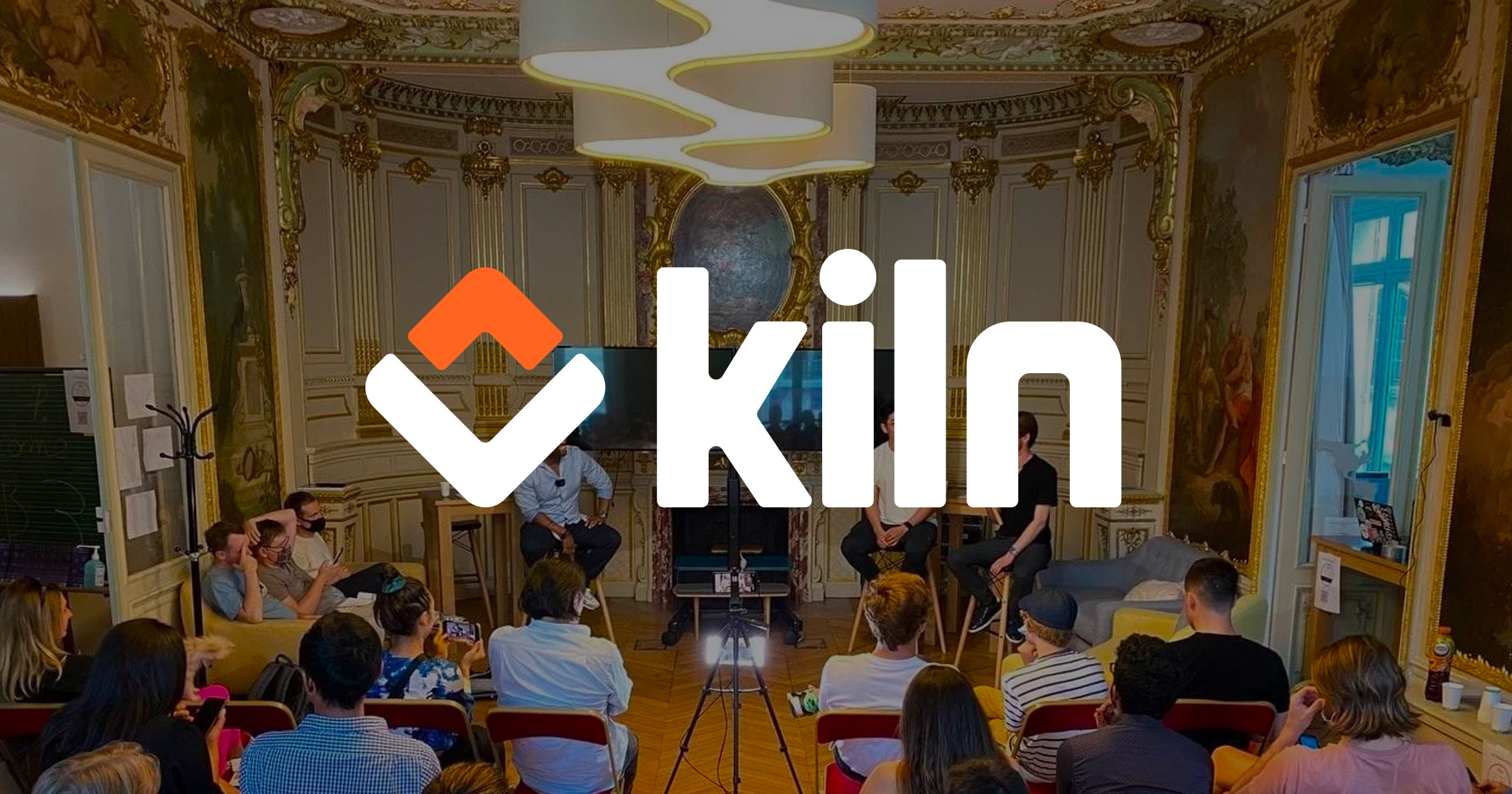Kiln Joins Alluvial to Build Ethereum Liquid Staking Alongside Figment
Alluvial's mission is to bridge the world's wealth to secure a neutral and decentralized foundation for the next generation of the internet. Today we're excited to interview Laszlo Szabo and Ernest Oppetit, co-founders of Kiln. Kiln and Figment have collaborated on the software development for enterprise liquid staking for Ethereum.

Q: Hi Laszlo and Ernest. Tell us about the Kiln team and what you do.
Kiln is an enterprise-grade staking platform. We enable our customers to stake assets directly, or to whitelabel staking into their products with a delightful API.
We are a team of 25 based in Paris, London, and Amsterdam and spread across Europe, with a track record of operational excellence with over a $800m stake across 10+ protocols. The team comprises ex Circle, Chainalysis, Palantir, Google, ConsenSys, Ledger, Polygon, and Improbable.
We started out in 2018 under the name SkillZ, when we spun out of the technical recruiting firm Laszlo founded. Initially, we aimed to develop a certification protocol for professional experiences on the Ethereum blockchain. We pivoted from this idea and since 2020 have been happily validating!
Q: Why did you decide to support the development of an enterprise-grade liquid staking protocol?
We believe liquid staking is a natural primitive on top of staking, unlocking liquidity and collateral use for staked positions. However, we understand from institutional customers that their compliance and security needs were not met, which is how we got very excited about this project.
Q: What is the significance (for you, for the ecosystem) that Kiln is working with Figment on the technology? How will this affect the development process?
We are grateful to Figment and Matt Leisinger for approaching us in November 2021 to work together on this project. While our companies have some competing products, there was a mutual understanding that an enterprise liquid staking protocol needs to be a close collaboration among multiple players from day one. We discovered that our companies have a strong cultural alignment and that our teams are naturally compatible. Shared protocol expertise, with Figment leading back-end development, and Kiln leading smart contract development.
Q: Is there anything about this kind of collaboration that is core to Kiln's values or philosophy?
Kiln's mission is to accelerate Web3 adoption. Web3 values are about building decentralization, trust, transparency, and collaboration. Figment shares similar values, which made our collaboration easy from day one. We agreed that liquid staking protocols for institutions needed to be compliant, secure, and technically sound without sacrificing Web3 values.
Q: Taking a step back, what does success look like here? Where are you hoping to see the protocol be a year from now?
We are hoping to see a thriving ecosystem around the protocol: a large set of integrators representing different geographies and customer segments, many opportunities for use of the liquid staking tokens, and a robust set of node operators.
We will also see the protocol extend its wings to the next layer 1's!
Q: What are the key protocol design decisions you can anticipate at this stage?
A big one of course is around supporting withdrawals as the Ethereum migration to proof of stake completes, and having a robust and well tested design for this crucial part of the protocol.
The other important decisions will be around handling execution-layer fees and the associated MEV strategy of the protocol, and making it easy for new node operators and distribution partners to join in as the protocol scales.
Q: Why is decentralization important for this effort?
Liquid staking protocols can become popular conduits for token holders to stake, so it is important that they maintain diversity at all layers of the stack, this affects: compute platforms and geographies, validator and execution client software, operational setups, and operational teams running the protocol. This helps to decrease the risk of consensus at the base layer becoming dominated by a few centralised parties as the protocol grows with assets under stake.
Q: Anything else you'd like to add?
We're delighted to be contributing to this protocol, and can't wait to see it deployed to mainnet!
Alluvial is a software development company offering a suite of enterprise-grade staking products and services. We're focused on enabling mainstream adoption and participation in proof of stake blockchains. Learn more
Please note
Liquid staking via the Liquid Collective protocol and using LsETH involves significant risks. You should not enter into any transactions or otherwise engage with the protocol or LsETH unless you fully understand such risks and have independently determined that such transactions are appropriate for you.
Any discussion of the risks contained herein should not be considered to be a disclosure of all risks or a complete discussion of the risks that are mentioned. The material contained herein is not and should not be construed as financial, legal, regulatory, tax, or accounting advice.